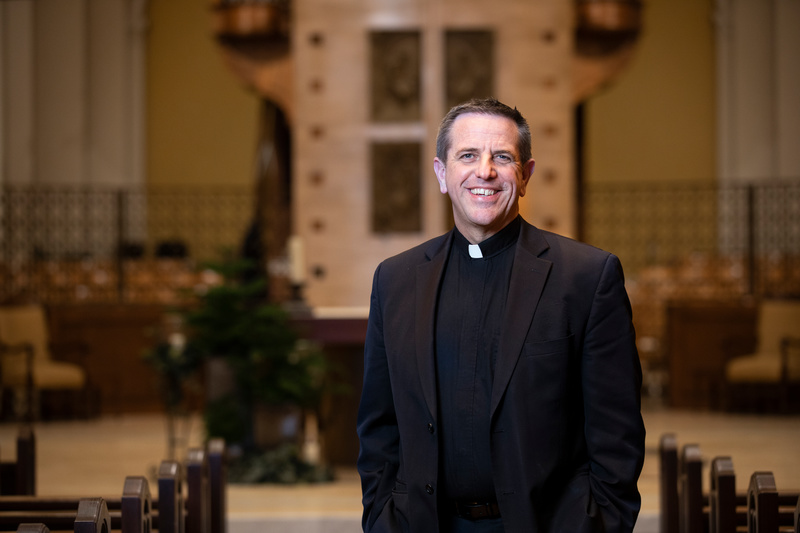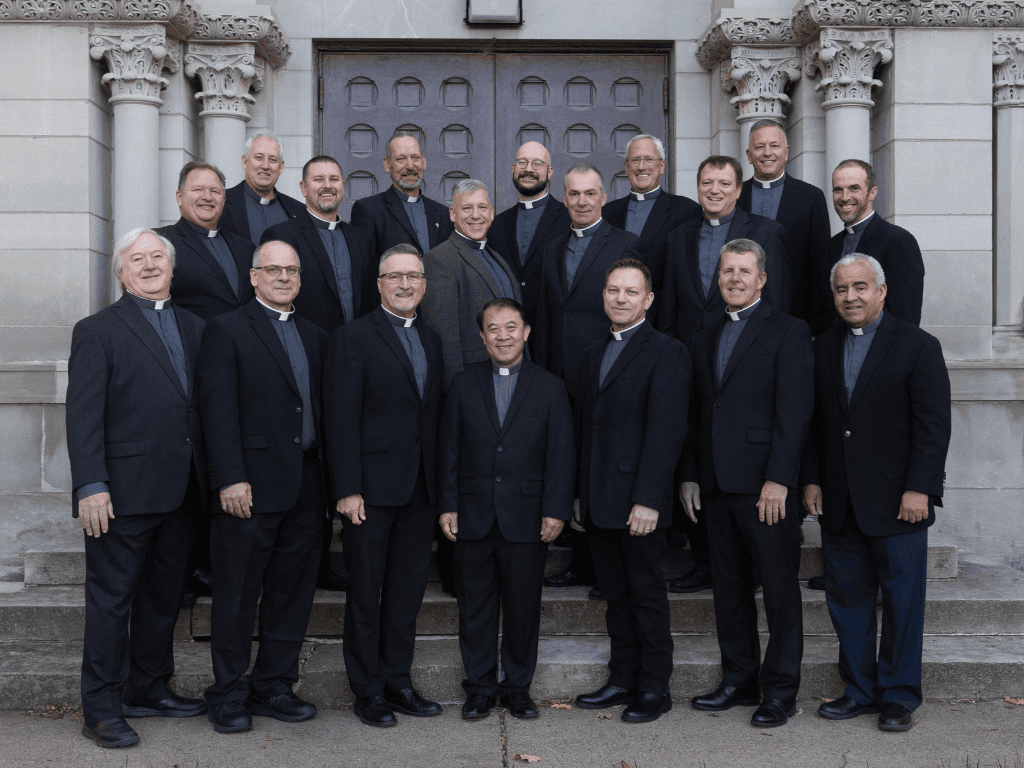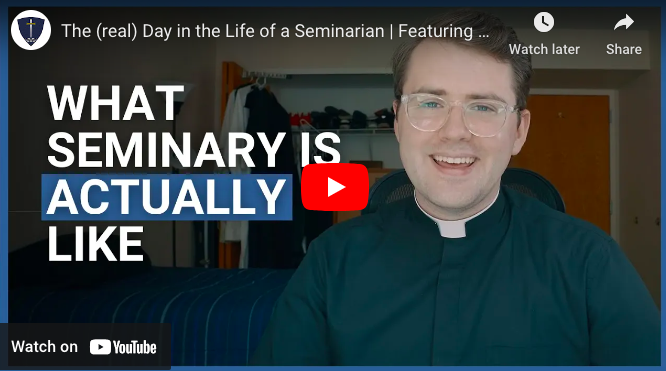"The Church authoritatively is teaching that it's morally permissible to get the vaccine."
St. Thomas’ recently announced COVID-19 vaccine requirement has helped drive up the university’s vaccination rate among students, faculty and staff; as of this week, more than 80% of the community has received at least one dose. With assistance of the Office for Mission, however, the university hopes additional education about the Catholic Church’s view on vaccines will help move the needle, resulting in an even greater rate by the time all students return to campus.
Father Chris Collins, SJ, St. Thomas’ vice president for mission, advises that the Catholic Church’s position supports vaccination efforts. In fact, in January, Pope Francis and Pope Emeritus Benedict XVI received their first doses of the COVID-19 vaccine and the Pope this week released a pro-vaccine video message. Sister Mary Haddad, RSM, the CEO and president of the Catholic Health Association and a St. Thomas Board of Trustees member, recently expressed to America magazine that those who do not get vaccinated are putting the health of others at risk.

The Newsroom spoke with Father Collins about why it is important to further increase the vaccination rate on campus and what lessons the community can learn from religious teachings.
Q: The university’s vaccination rate already exceeds that of the U.S. and Minnesota. Why is it important to further increase the numbers?
Collins: There are people still getting very sick, there are still people dying. We're not quite past this, as all of us had hoped. So, it is important that more of our community members get the vaccine today, if they haven't already, so that we can do our part to help save lives. It is also important to have more people vaccinated so that we can come back in person and have great interactions in the classroom; so that our athletics teams can have great seasons; so that our lives in the residence halls can be robust and interactive and fun and that students can build relationships in very human ways. For that matter, I hope that our Mass attendance is great and we don't have any hesitations in that regard!
It is important to have more of our community members vaccinated, unless there is any medical reason not to get vaccinated, so that in all the different aspects of our life on campus we can have them be as normal as possible. We really do urge everybody to get that vaccination because lives depend on it.
Q: Some people cite that how the vaccines were developed goes against Catholic teaching and tradition. What does the Catholic Church say about getting the vaccine?
Collins: There are different opinions and visions and views among all kinds of different Catholics, but it’s been made pretty clear at every authoritative level of the Church that it is OK to get the COVID-19 vaccine. Obviously not everybody is Catholic, but we're a Catholic university and from a Catholic perspective we take our guidance from what the Church is encouraging everyone to do.
With respect to the questions about vaccines themselves, the position has been made very clear from the Pope and from what's called the Congregation for the Doctrine of the Faith, in Rome. They formally investigated and researched this and made ethical recommendations. The U.S. bishops also made a proclamation saying that these vaccines are allowed. They are urging everybody to get these vaccines and there are no ethical barriers to that when it comes to the Church's moral teaching. The Church authoritatively is teaching that it's morally permissible and even strongly encouraged for all.
Q: Even though the Church says there is no religious or moral reason within Catholicism to prevent one from taking the vaccine, what about those who say that due to their own conscience or morals they don’t want a vaccine?
Collins: From a Catholic perspective, an individual should always follow his or her conscience on any kind of a moral question. We all have a conscience we've got to follow. At the same time, our conscience should be informed by a whole variety of places: our own reason, authorities elsewhere, from Scripture, from tradition. So, if one is allowing their conscience to be informed by the Catholic Church, the Church is saying get the vaccine!
Q: There are some people who also just haven’t seen the urgency in getting vaccinated. What should they know?
Collins: Even aside from all the different complicated moral questions and conscience and all the distinctions to be made there, we know that a lot of the population is also just plain not getting around to getting vaccinated. There's no big theological, philosophical or ideological reason for many people. So, we're also urging those who haven't gotten around to it to please go get vaccinated. Do your part, both to protect yourself and especially for other people. Serve the common good that way as you come in to begin the new year at St. Thomas.
Q: St. Thomas has on its COVID-19 web page that it is a duty and moral obligation to receive the vaccine out of solidarity with others and for the safety of others, especially the most vulnerable. With that in mind, what’s your final takeaway for the St. Thomas community?
Collins: Think about the people who you're going to be with [this year]. Who are your friends? Who are the strangers that you're going to meet this coming year? You really do have an obligation to try to look out for them and to care for them as well.
I really do hope that if you have not gotten around to getting vaccinated that this kind of call to action and urging us all to reflect on how we're going to be interacting with others will help us to do right by each other.
Please do get vaccinated so that we can have a great year together!






